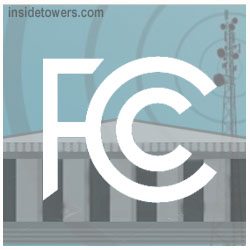A federal appeals court agreed with the FCC Friday on some portions of its small cells order from 2018, and disagreed on others.
At issue was the agency’s decision to exempt most small cell deployment from two kinds of previously required review: historic-preservation review under the National Historic Preservation Act (NHPA) and environmental review under the National Environmental Policy Act (NEPA). These reviews assess the effects of new construction on sites of religious and cultural importance to federally recognized Indian Tribes. The Order also effectively reduced Tribes’ role in reviewing proposed construction of macrocell towers and other wireless facilities that remain subject to cultural and environmental review.
Several tribes challenged the Commission’s order, led by the United Keetoowah Band of Cherokee Indians, the Blackfeet Tribe and the Native American Rights Fund. The Natural Resources Defense Council (NRDC) also challenged the order. CTIA joined to defend the FCC. The challengers called the FCC decision “arbitrary and capricious and an unjustified policy reversal,” according to the court decision. The tribes also told the court the order, “removes a broad category of telecommunications deployments from historical and environmental review and severely limits the ability of Tribal historic preservation officers to collect fees.”
The U.S. Court of Appeals for the District of Columbia Circuit agreed with the challengers that the Commission “failed to justify its confidence that small cell deployments pose little to no cognizable religious, cultural, or environmental risk, particularly given the vast number of proposed deployments and the reality that the Order will principally affect small cells that require new construction. It vacated this part of the small cells order, and this portion will be sent back to the agency, which could try to better justify it. FCC Commissioner Brendan Carr said the FCC is reviewing the portions of the March order “the D.C. Circuit did not affirm and look[s] forward to next steps, as appropriate.”
The court sided with the Commission on the issue of upfront fees to tribes, saying those are voluntary. Keetoowah contended the tribes only agreed to accept direct contact from applicants if they are paid for their responses — meaning if the tribes don’t respond they still have not waived the FCC’s responsibility to consult with them directly. Without that, the tribes said, the agency can’t permit applicants to proceed with construction.
The court didn’t agree, stating a tribe’s refusal to respond triggers a process in which applicants can refer the matter to the FCC. The agency must contact tribes directly, and tribes have 15 days from Commission contact to respond. “The Tribe is guaranteed the opportunity to consult as a sovereign—a capacity in which it need not be paid—and the Commission cannot force an unwilling Tribe to respond,” said the court in the decision. Therefore, if a tribe refuses to respond when the FCC asks it to review an application, the agency “has discharged its obligation of direct Commission-to-Tribe consultation,” according to the court.
In response, the National Association of Tower Erectors said: “As an organization consisting of 900 member companies encompassing all 50 states, [the] decision affirming the streamlined review process and the provisions restricting upfront fees is great news and a major victory for next generation wireless deployments!”
“Over the past few years, the FCC has made considerable progress in removing barriers to 5G deployment, including eliminating unnecessary regulations and streamlining siting processes,” said Wireless Infrastructure Association President/CEO Jonathan Adelstein. “The D.C. Circuit upheld part of the FCC Infrastructure Order that will help speed deployment across the United States. The wireless industry continues to work with all relevant stakeholders to ensure that the U.S. wins the global race to 5G.”
FCC Commissioner Brendan Carr, too, was pleased, saying the most important part of the court’s decision was that it affirmed the FCC’s decision “that parties cannot demand upfront fees before reviewing any cell sites, large or small. These fees, which had grown exponentially in the last few years, created incentives for frivolous reviews unrelated to any potential impact on historic sites. Those financial incentives are gone, and we expect our fee restrictions to continue greatly diminishing unnecessary and costly delays.”
He was also pleased the court affirmed the agency’s accelerated timelines for reviews. “Already, these reforms have resulted in significant new builds,” said Carr.
His colleague, Commissioner Jessica Rosenworcel, had an opposing view, saying the court “vacated a large part” of the March 2018 order. “That means the agency tasked with the future of connectivity didn’t get it right. It’s time to go back to the drawing board and do better.” Comments? Email Us.
By Leslie Stimson, Inside Towers Washington Bureau Chief
August 12, 2019





Reader Interactions